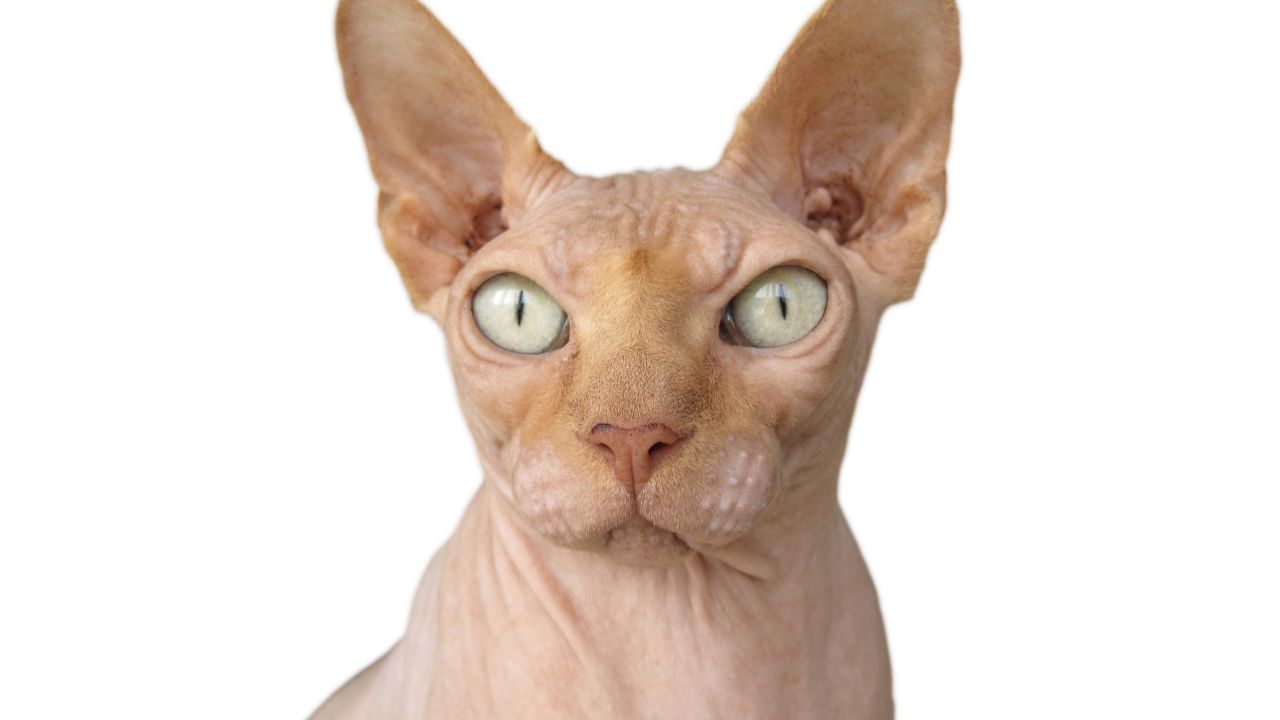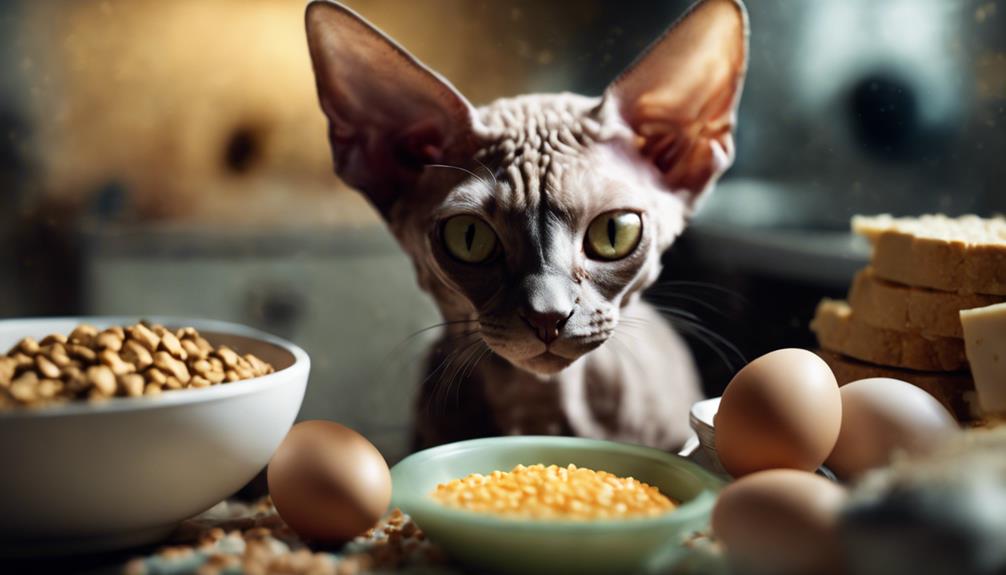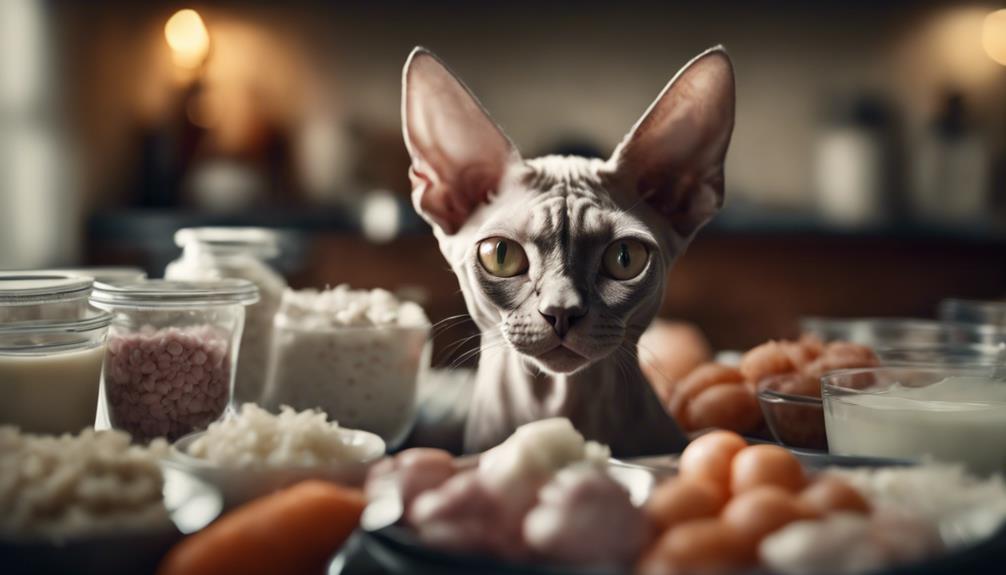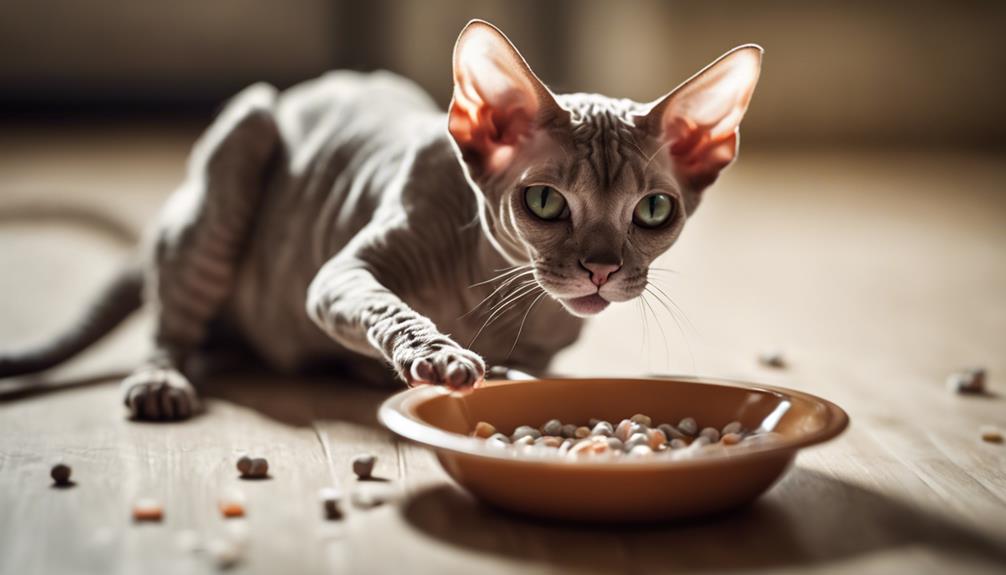Sphynx cats are unique and fascinating creatures that have captured the hearts of many cat lovers around the world. These hairless felines are known for their striking appearance, but there is much more to them than meets the eye. Understanding their personality and traits is crucial for any potential owner looking to bring one of these cats into their home.
One of the most distinctive traits of Sphynx cats is their personality. These cats are incredibly affectionate and love to cuddle with their owners. They are also highly intelligent and curious, always exploring their surroundings and seeking out new adventures. However, they can also be mischievous at times and may get into trouble if left unsupervised for too long.
While Sphynx cats are generally healthy, they can be prone to certain health issues such as skin problems and heart conditions. As such, it’s important for owners to be aware of these potential issues and take steps to prevent them. Regular vet check-ups and a healthy diet are just a few ways to keep these cats in tip-top shape. Overall, Sphynx cats are a unique and wonderful addition to any household, but it’s important to understand their personality and health needs before bringing one home.
History and Origin
The Sphynx cat is a unique breed that is known for its hairless appearance and distinctive personality. In this section, we will explore the history and origin of the Sphynx cat, including its ancient roots and modern development.
Ancient Egypt
While the Sphynx cat we know today is a modern breed, its roots can be traced back to ancient Egypt. The Egyptians were known to keep hairless cats as pets, and they believed that these cats had special powers. They were often depicted in artwork and were even mummified alongside their owners.
Canadian Hairless
The modern Sphynx cat originated in Toronto, Canada, in the 1960s. A hairless kitten named Prune was born to a traditional fur-coated cat, and this genetic mutation led to the development of the Sphynx breed. The breed was further developed through careful breeding programs, and it was eventually recognized by cat associations around the world.
Genetic Mutation
The hairlessness of the Sphynx cat is the result of a natural genetic mutation. This mutation affects the production of hair and leads to a cat that is essentially hairless. However, the Sphynx cat is not completely bald, and it may have a fine layer of downy fur on its body.
Today, the Sphynx cat is a popular breed that is known for its affectionate personality and playful nature. While it may not be the best choice for those with allergies, it is a great pet for those who are looking for a unique and loving companion.
In summary, the Sphynx cat has a fascinating history and origin story that spans thousands of years. From ancient Egypt to modern-day Toronto, this breed has captured the hearts of cat lovers around the world.
Physical Traits
Sphynx cats are known for their unique physical traits that set them apart from other cat breeds. Here are some of the most notable physical traits of Sphynx cats.
Hairlessness
The most distinctive feature of Sphynx cats is their hairlessness. While they are not completely hairless, they have a very short, fine coat that feels like suede or chamois. This unique feature makes them stand out from other cat breeds. Sphynx cats are born with a thin layer of hair, but they lose most of it within the first few weeks of life. They may have some hair on their nose, ears, tail, and toes.
Colors and Patterns
Sphynx cats come in a variety of colors and patterns. They can be solid colors like black, white, cream, gray, and brown, or they can be patterned like tortoiseshell and pointed. The pigment of their skin can also vary, which can affect the color of their eyes. Sphynx cats can have blue, green, gold, or copper-colored eyes.
Ears and Whisker Pads
Sphynx cats have large, prominent ears that are wide at the base and taper to a point. Their ears are set high on their head and are often described as bat-like. They also have prominent whisker pads, which give their face a distinctive look.
Belly and Wrinkled Skin
Sphynx cats have a unique belly that is often described as a “potbelly.” This is due to the fact that they have a layer of fat on their belly that helps to regulate their body temperature. They also have wrinkled skin, which gives them a unique texture and appearance.
Size and Weight
Sphynx cats are a medium-sized breed, but they are nicely muscled and heavy for their size. They typically weigh between 8 and 12 pounds and stand about 8-10 inches tall. They have a sleek, muscular body that is dense and heavy for their size.
Overall, Sphynx cats have a unique and distinctive appearance that sets them apart from other cat breeds. Their hairlessness, prominent cheekbones, and other physical traits make them a popular choice for cat lovers who are looking for a unique and interesting pet.
Personality and Temperament
Sphynx cats are known for their unique personalities and playful temperament. They are intelligent, active, affectionate, and sociable pets that make great companions for families with children and other pets.
Intelligence and Trainability
Sphynx cats are highly intelligent and can be trained to do various tricks, such as fetching toys or responding to commands. They are quick learners and respond well to positive reinforcement training methods, such as clicker training.
Activity Level and Exercise
Sphynx cats have a high activity level and require regular exercise to keep them healthy and happy. They enjoy playing with toys, climbing, and exploring their surroundings. Owners should provide them with plenty of opportunities for physical and mental stimulation, such as puzzle toys or interactive play sessions.
Affectionate and Sociable
Sphynx cats are affectionate and sociable pets that love spending time with their owners. They crave attention and enjoy cuddling and being petted. They are also very people-oriented and get along well with other pets, including dogs.
Loving and Friendly
Sphynx cats are known for their loving and friendly nature. They are loyal pets that form strong bonds with their owners and enjoy being around people. They are also very social and love meeting new people and animals.
Playful and Energetic
Sphynx cats are playful and energetic pets that love to play. They enjoy chasing toys, climbing, and exploring their surroundings. They are also very curious and love to investigate new things.
In summary, Sphynx cats have a unique personality and playful temperament that make them great companions for families with children and other pets. They are intelligent, active, affectionate, and sociable pets that enjoy being around people and other animals. Owners should provide them with plenty of opportunities for physical and mental stimulation to keep them healthy and happy.
Health and Care
As a hairless breed, Sphynx cats require some extra attention and care to keep them healthy and comfortable. Here are some important aspects of their health and care to keep in mind:
Grooming and Bathing
Despite their lack of fur, Sphynx cats still require regular grooming to maintain healthy skin. They have a thin coat of downy fur that can become oily and prone to wax buildup, which can lead to skin irritations and infections. Regular bathing with a gentle shampoo is recommended to keep their skin clean and free of debris.
In addition to bathing, Sphynx cats also need their nails trimmed regularly to prevent them from becoming too long and causing discomfort. It’s also important to clean their ears and teeth regularly to prevent dental disease and other health issues.
Nutrition and Diet
Sphynx cats have a high metabolism and require a nutrient-dense diet to maintain their energy levels. A balanced diet that includes high-quality protein, healthy fats, and essential vitamins and minerals is essential for their overall health and well-being.
It’s important to monitor their weight and adjust their diet accordingly to prevent obesity and other health problems. Consult with your veterinarian to determine the best diet for your Sphynx cat based on their age, weight, and activity level.

Health Problems and Issues
Sphynx cats are generally healthy, but they are prone to certain health problems and issues. Heart disease, particularly hypertrophic cardiomyopathy, is a common health issue in Sphynx cats that requires careful monitoring and treatment.
They are also prone to periodontal disease, so regular dental check-ups and cleanings are important to prevent tooth decay and gum disease. Sphynx cats can also be prone to cat allergies, so it’s important to keep their environment clean and free of allergens.
Special Care Needs
Sphynx cats have unique care needs due to their hairless skin and susceptibility to cold temperatures. They may require sweaters or coats to keep them warm in colder weather, and their skin may need special attention to prevent dryness and irritation.
It’s also important to choose a breeder who offers a health guarantee and has a good reputation for breeding healthy Sphynx cats. Regular check-ups with a veterinarian who is familiar with the breed can also help ensure their ongoing health and well-being.
FAQs
Here are some frequently asked questions about Sphynx cats and their personality traits:
How much does a Sphynx cat cost?
Sphynx cats can be quite expensive, with prices ranging from $1,500 to $3,000 or more. The price can vary depending on factors such as the cat’s age, gender, and pedigree.
Are Sphynx cats vocal?
Yes, Sphynx cats are known for being quite vocal. They may meow, chirp, or purr to communicate with their owners. Some Sphynx cats are more talkative than others, so it’s important to get to know your individual cat’s personality.
Do Sphynx cats like to play with toys?
Yes, Sphynx cats are playful and enjoy playing with a variety of toys. They may enjoy chasing balls, playing with string, or batting around toy mice. It’s important to provide your Sphynx cat with plenty of toys to keep them entertained and mentally stimulated.
Can Sphynx cats learn tricks?
Yes, Sphynx cats are intelligent and can learn a variety of tricks. They may enjoy learning how to fetch, sit, or even play dead. It’s important to use positive reinforcement when training your Sphynx cat, such as treats or praise.
Do Sphynx cats like to cuddle?
Yes, Sphynx cats are known for being affectionate and enjoy cuddling with their owners. They may even want to sleep in bed with their owners at night. It’s important to provide your Sphynx cat with plenty of love and attention to keep them happy.
How do you trim a Sphynx cat’s nails?
Sphynx cats need their nails trimmed regularly, as they do not have fur to wear down their nails naturally. You can use nail clippers designed for cats to trim your Sphynx cat’s nails. It’s important to be gentle and careful when trimming their nails, as they can be sensitive.
Can Sphynx cats jump and climb?
Yes, Sphynx cats are athletic and can jump and climb just like other cats. However, they may not be as agile as other cats due to their lack of fur, which can make it harder for them to grip surfaces.
Are Sphynx cats independent?
Sphynx cats are known for being sociable and enjoy being around their owners. They may follow their owners around the house and want to be involved in their daily activities. While they are not completely dependent on their owners, they do enjoy spending time with them.
Are Sphynx cats good indoor pets?
Yes, Sphynx cats are good indoor pets. They do not have fur to protect them from the elements, so they are best kept indoors where they can stay warm and safe. It’s important to provide them with plenty of toys and mental stimulation to keep them happy and healthy.
Do Sphynx cats get along with other pets and children?
Yes, Sphynx cats are sociable and can get along well with other pets and children. They enjoy being around people and other animals, and can make great family pets. However, it’s important to supervise interactions between Sphynx cats and young children to ensure that everyone stays safe.
Do Sphynx cats require special care?
Yes, Sphynx cats require some special care due to their lack of fur. They may need to be bathed regularly to keep their skin clean and healthy. They may also need to be protected from the sun to prevent sunburn or skin damage. Additionally, some Sphynx cats may be prone to skin conditions such as urticaria pigmentosa, so it’s important to monitor their skin for any changes.
Are Sphynx cats hypoallergenic?
While Sphynx cats are often referred to as hypoallergenic, they are not completely allergen-free. Some people may still be allergic to the proteins found in their saliva or skin oils. However, because they do not have fur, they may be less likely to cause an allergic reaction than other cats.
What is the personality of a Sphynx cat?
Sphynx cats are known for being affectionate, sociable, and loyal. They enjoy being around their owners and may follow them around the house. They are also playful and enjoy playing with toys. Overall, Sphynx cats make great companions for those who are looking for a friendly and loving cat.




